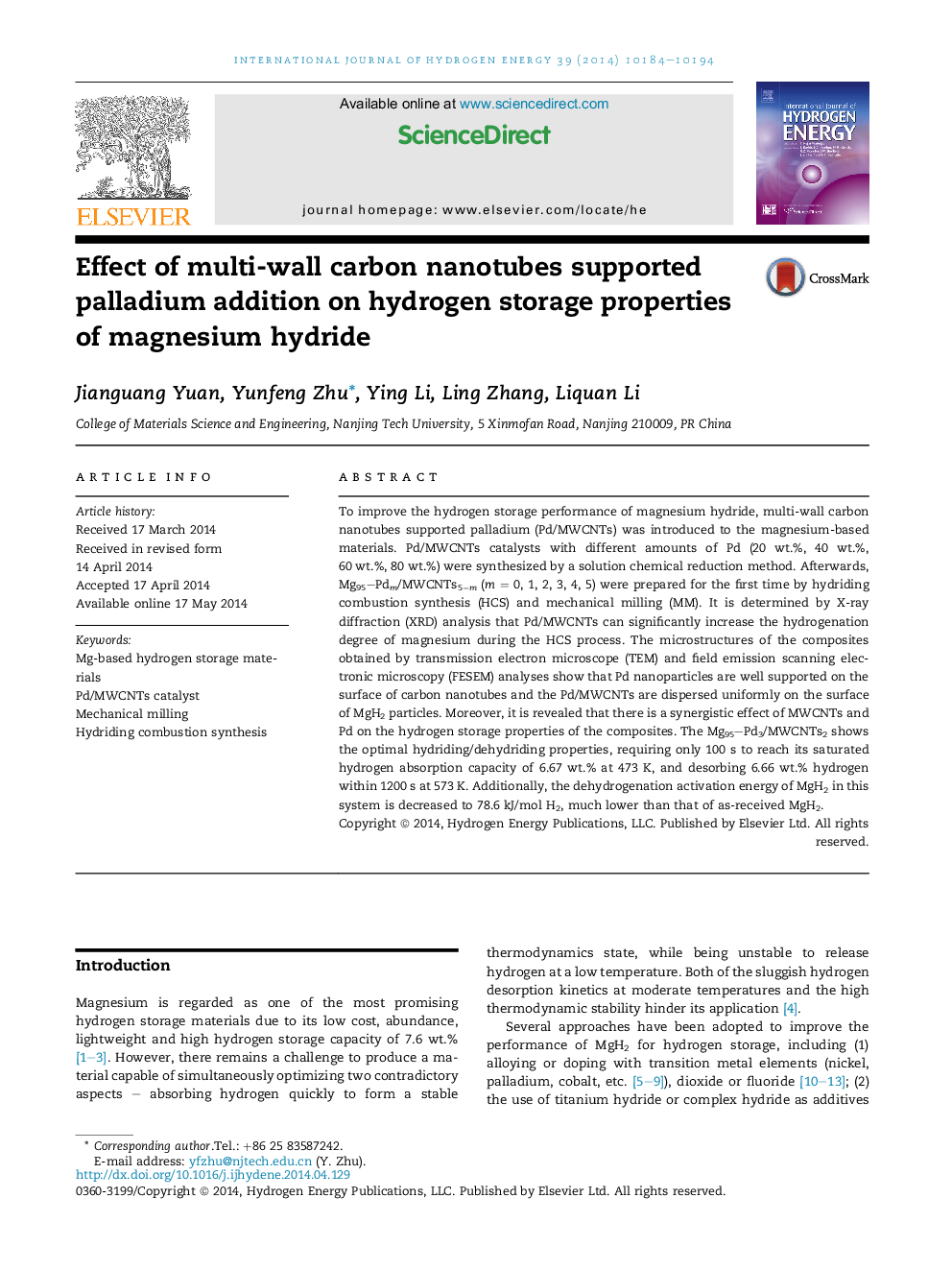| کد مقاله | کد نشریه | سال انتشار | مقاله انگلیسی | نسخه تمام متن |
|---|---|---|---|---|
| 1270371 | 1497490 | 2014 | 11 صفحه PDF | دانلود رایگان |
• A novel Pd/MWCNTs catalyst was synthesized by a solution chemical reduction method.
• The Mg–Pd/MWCNTs composites were prepared for the first time by HCS + MM.
• Pd/MWCNTs significantly increase hydrogenation degree of Mg during the HCS process.
• There is a synergistic effect of MWCNTs and Pd on the hydrogen storage properties.
• Both hydriding/dehydriding properties of the Mg–Pd/MWCNTs composites are improved.
To improve the hydrogen storage performance of magnesium hydride, multi-wall carbon nanotubes supported palladium (Pd/MWCNTs) was introduced to the magnesium-based materials. Pd/MWCNTs catalysts with different amounts of Pd (20 wt.%, 40 wt.%, 60 wt.%, 80 wt.%) were synthesized by a solution chemical reduction method. Afterwards, Mg95–Pdm/MWCNTs5−m (m = 0, 1, 2, 3, 4, 5) were prepared for the first time by hydriding combustion synthesis (HCS) and mechanical milling (MM). It is determined by X-ray diffraction (XRD) analysis that Pd/MWCNTs can significantly increase the hydrogenation degree of magnesium during the HCS process. The microstructures of the composites obtained by transmission electron microscope (TEM) and field emission scanning electronic microscopy (FESEM) analyses show that Pd nanoparticles are well supported on the surface of carbon nanotubes and the Pd/MWCNTs are dispersed uniformly on the surface of MgH2 particles. Moreover, it is revealed that there is a synergistic effect of MWCNTs and Pd on the hydrogen storage properties of the composites. The Mg95–Pd3/MWCNTs2 shows the optimal hydriding/dehydriding properties, requiring only 100 s to reach its saturated hydrogen absorption capacity of 6.67 wt.% at 473 K, and desorbing 6.66 wt.% hydrogen within 1200 s at 573 K. Additionally, the dehydrogenation activation energy of MgH2 in this system is decreased to 78.6 kJ/mol H2, much lower than that of as-received MgH2.
Journal: International Journal of Hydrogen Energy - Volume 39, Issue 19, 24 June 2014, Pages 10184–10194
